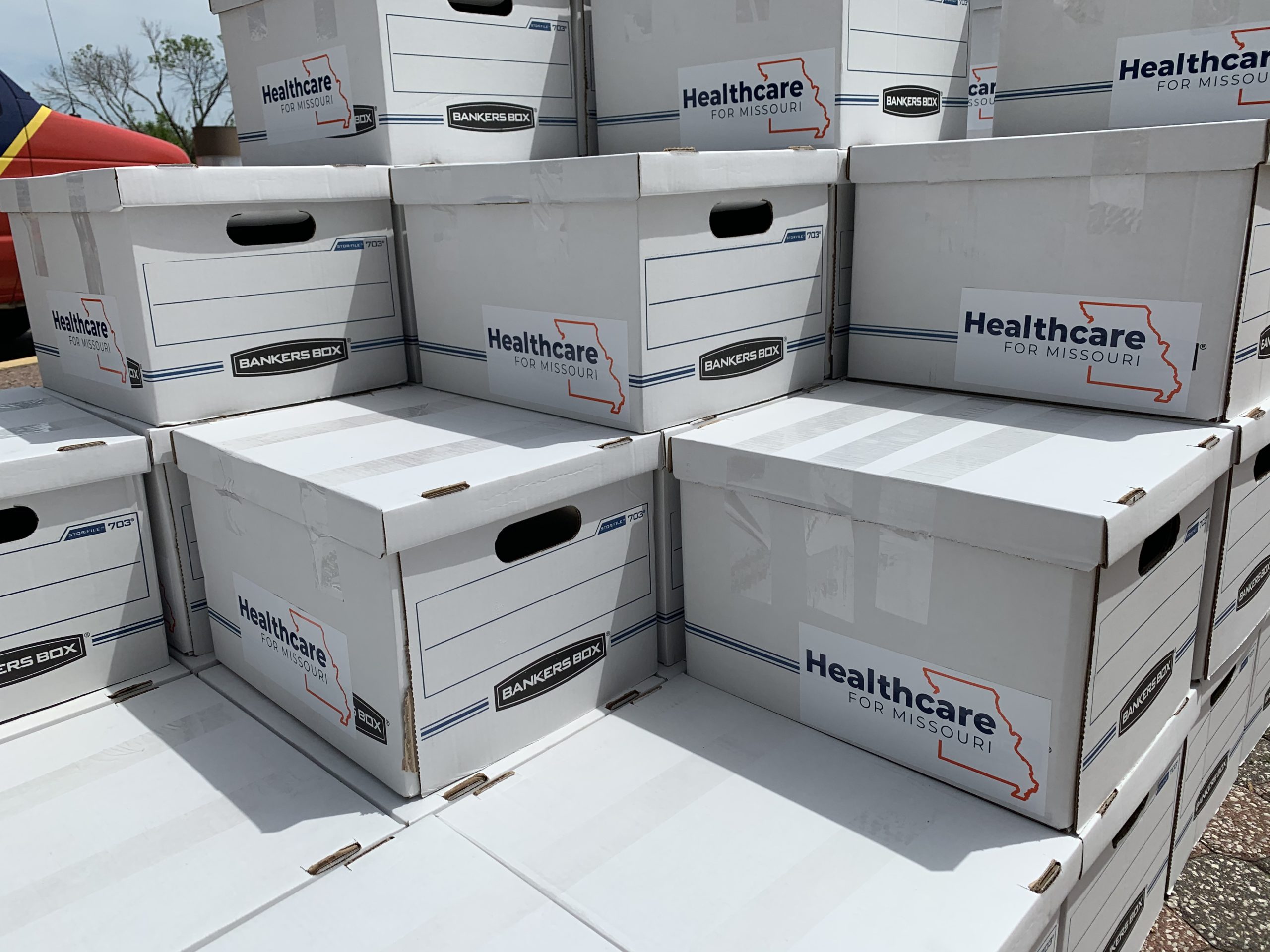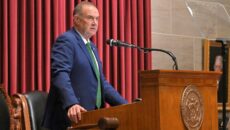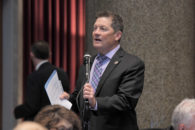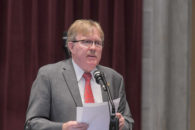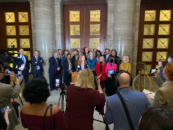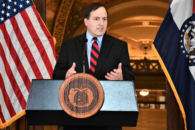Certification raises concerns Medicaid expansion could be placed on August ballot
By using a rare method to verify signatures, the Missouri Secretary of State’s Office has certified the Medicaid expansion initiative petition to appear before voters — possibly as early as August.
The office used what’s called “random sampling” to verify the more than 341,000 signatures submitted for Petition 2020-63 earlier this month. Through this process, the Secretary of State’s Office must examine 5 percent of the submitted signatures.
The number of signatures verified must be at least 8 percent of the number of voters in at least six of the eight congressional districts who cast ballots for the gubernatorial race in the last election by congressional district.
With other initiative petitions, pages are distributed to local election officials to verify signatures. The decision to use random sampling was made in part because the municipal elections had been moved to June 2 due to the ongoing COVID-19 pandemic, the Secretary of State’s Office said Friday afternoon.
“We carefully considered whether to have local election officials conduct signature verifications at the same time as they prepare for the June election,” Secretary of State Jay Ashcroft said in a statement. “After visiting all 116 election officials in the state over the last two weeks, I know we made the right decision. It would have created a tremendous amount of work for them at the same time they prepare for, conduct, and certify their local election.”

“We know access to health care is more important now than ever,” A.J. Bockelman, campaign manager for Healthcare for Missouri, said. “Today’s certification is a testament to those from every corner of our state who came together to overwhelmingly place Medicaid expansion on the ballot so that 230,000 hardworking Missourians no longer have to choose between putting food on the table and being able to see a doctor.”
The use of random sampling has raised eyebrows, however.
In a letter sent to the secretary of state Friday requesting more information, Stinson LLP attorney Chuck Hatfield questioned whether random sampling was used in order for the initiative petition to be certified in time for Gov. Mike Parson to bump it to the August ballot instead of November as it’s planned now. The deadline to do so is May 26.
Earlier this month, Parson told reporters he doesn’t believe “it’s the time to be expanding” a program such as Medicaid given the financial uncertainty brought by the coronavirus crisis.
“Although statutes contain an expedited random sampling option, it shall only be used if signatures are ‘drawn in such a manner that every signature properly filed … shall be given an equal opportunity to be included in the sample.’ And the law requires the Secretary of State to establish a process for ‘establishing the random sample and determining the statistically valid result,’” the letter said. “To that end, the secretary must engage in the rule making process. A state agency may not make decisions that affect the rights of its citizens based on ‘internal procedures,’ the law requires promulgated rules.”
“But there are no rules or regulations governing the random sampling of initiative petition signatures. As a result, you have no authority to deviate from the normal practice and conduct a random sampling process in order to put Medicaid expansion on the August ballot.”
“Nothing has been confirmed on this topic,” Kelli Jones, Parson’s communications director, told The Missouri Times. “Details should be forthcoming next week.”
This is not the first time random sampling has been used by the office when certifying an initiative petition, Maura Browning, a spokeswoman for the secretary of state, told The Missouri Times. Former Secretaries of State Roy Blunt and Rebecca Cook both certified initiative petitions through random sampling.

The ballot language asks voters to amend the Missouri Constitution to expand MO HealthNet services for individuals between 19 and 64 years old with an income level at or below 133 percent of the federal poverty level. It would also prohibit greater or additional burdens on eligibility for enrollment standards.
The income benchmark would be set at less than $18,000 for an individual or $30,000 for a family of three.
According to the fiscal note calculated by the state auditor, state government entities are estimated to have one-time costs of roughly $6.4 million and an unknown annual net fiscal impact by 2026 ranging from increased costs of at least $200 million to savings of $1 billion.
This story has been updated with comments from the Secretary of State’s Office.
EDITOR’S NOTE: For up-to-date information on coronavirus, check with the CDC and DHSS.

Kaitlyn Schallhorn was the editor in chief of The Missouri Times from 2020-2022. She joined the newspaper in early 2019 after working as a reporter for Fox News in New York City.
Throughout her career, Kaitlyn has covered political campaigns across the U.S., including the 2016 presidential election, and humanitarian aid efforts in Africa and the Middle East.
She is a native of Missouri who studied journalism at Winthrop University in South Carolina. She is also an alumna of the National Journalism Center in Washington, D.C.
Contact Kaitlyn at kaitlyn@themissouritimes.com.

